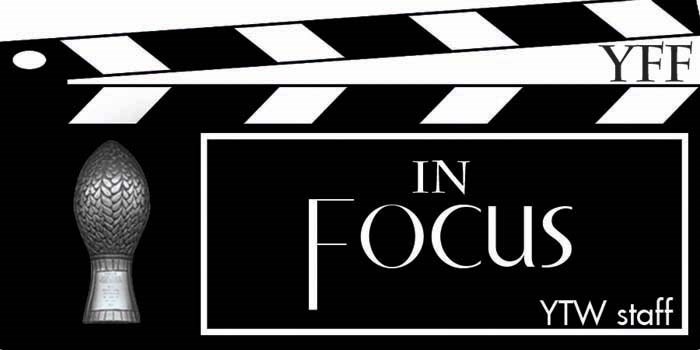While we have been focused on the more recent years of the Yorkton Film Festival, this is a festival with a long history, and one which has seen many of this country’s most acclaimed and internationally recognized short films pass through the city. It’s time to take a trip back, this time all the way to 1975, and visit a much older film that took home several prizes in Yorkton. Man Who Chooses the Bush (dir. Tom Radford) took Best Film of the Festival, Best Documentary, Best Direction and Best Cinematography in 1975
Documentaries love a good outsider, it can be argued that the genre was built on the backs of outsiders, ever since Robert J. Flaherty invented Nanook of the North. Frank Ladouceur, the subject of Man Who Chooses the Bush, spends long periods of time on his trapline catching muskrat, frequently leaving his large family to do so - seemingly returning only to increase the size of said family, his oldest daughter recounting how she was increasingly frustrated that there was another baby every year in one scene - content to be in the bush and not speaking to another soul for months at a time.
It’s not really depicted as an unduly harsh existence, while some viewers might have a difficult time with scenes depicting Ladouceur preparing furs of the animals or butchering a moose he has killed the film doesn’t depict him as barbaric or backwards. It’s not exactly going to make anyone join him on the trapline - that same daughter talking about how she’d much rather have the chance to come home to a warm bath is probably going to reflect the viewpoint of a lot of viewers - but the more you learn about Ladouceur and the community he grew up in, the more it makes sense that he would decide to get away from people and live in the wilderness.
This is because the film is not just about the man himself, but the community he lives in, and it’s a community that doesn’t quite know what to do with its cultural identity - in this case Metis - or the relative difficulty of living in the north. The school is trying to make a Cree Christmas pageant a thing, but students aren’t speaking the language or really sure what to make of their heritage. In the distance an abandoned convent lurks, a remnant of attempts to make kids more “white” that have finally taken hold outside of the influence of clergy, with the younger generation being less interested in the traditions of their ancestors and the language they speak at home - the younger kids refusing to speak Cree in spite of knowing the language being a big point in the film.
It’s very much an independent production from the 1970s, from the heavy grain of the film stock to the yellow font used for the credits, though otherwise it could be made today without much modification. If anything, we can connect the dots between the struggle for an identity in this film to the current crisis of drugs and suicide in today’s northern communities.
One gets the impression that while Ladouceur doesn’t have the solution for everyone, his life makes sense for him. Part way through the film a student, Noel Martin, says “You can’t deny what you are, you have to accept it, and once you accept it you will be happy.” Ladouceur has accepted that he’s a trapper. The rest of the town, it seems, doesn’t know what it is.
Man Who Chooses the Bush is available at nfb.ca.




